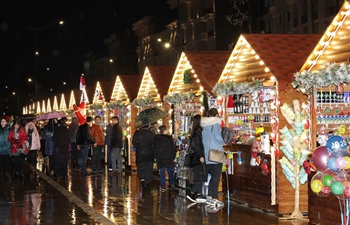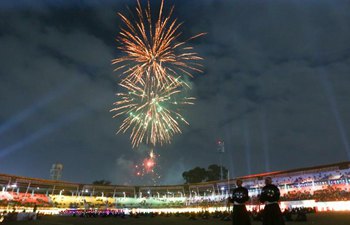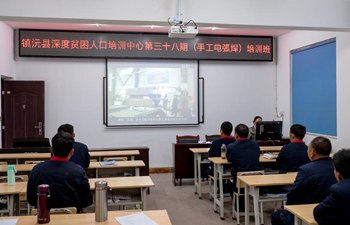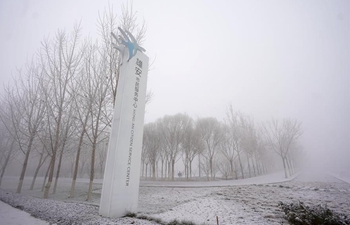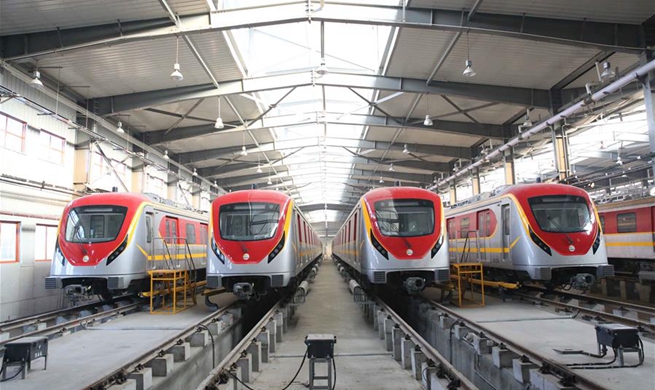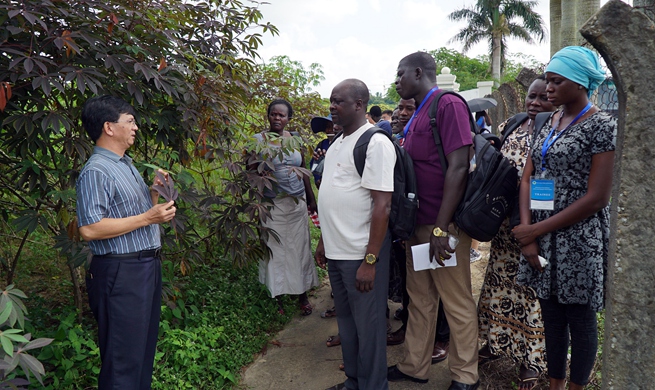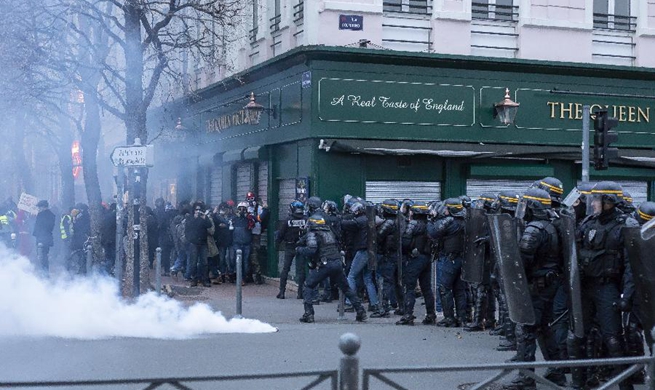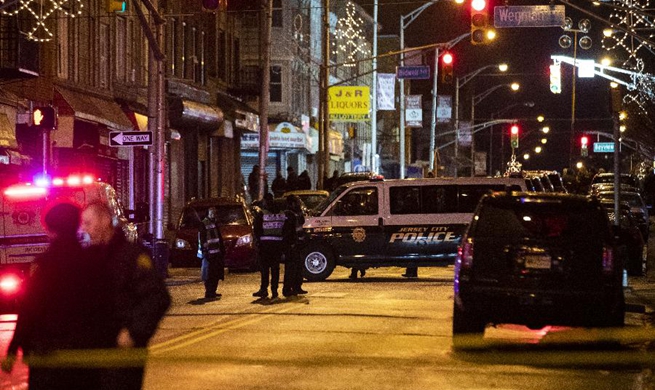NEW DELHI, Dec. 11 (Xinhua) -- Violent protests broke out in India's northeastern states of Assam and Tripura Wednesday against federal government's decision to bring in Citizenship Amendment Bill (CAB), officials said.
To contain the protests, authorities have deployed columns of the Indian army -- two in Tripura and one kept on standby for Assam.
The protests rocked Assam Wednesday where hundreds of people mostly students took to roads shouting slogans against ruling Bhartiya Janta Party (BJP). The protesters in huge numbers ransacked the railings dividing roads, billboards and lit bonfires at several places to went their anger against the CAB.
Reports said at several places protesters clashed with police and paramilitary troopers deployed in the state, following which government forces fired tear smoke shells to disperse the agitators.
The protesters marched on roads headed toward secretariat building, the highest seat of governance in Dispur, the capital city of Assam.
Reports said protests also broke out in Guwahati, Dibrugarh and Sivasagar. Police also used water cannons to disperse the protesters but protesters were going on until last reports poured in.
The protests have affected normal life in the state.
In the adjacent state of Tripura, similar protests have broken out against the CAB.
The Tripura government on Tuesday blocked mobile internet and text messaging services across the state for 48 hours in wake of the protests.
Students groups in the northeast fear the CAB would endanger their region's ethnic identity.
In wake of the massive protests, the northeast frontier railway Wednesday cancelled many trains.
Two columns of Indian army have been dispatched to the Kanchanpur and Manu areas Tripura, while a third has been sent to Bongaingon in Assam.
Reports said several companies of paramilitary troopers also have been airlifted to the northeast to subdue protests.
The bill aims at granting citizenship to illegal immigrants belonging to six religions -- Hinduism, Sikhism, Buddhism, Jainism, Parsi and Christianity -- from Bangladesh, Afghanistan and Pakistan. However, it has kept out Muslims from applying for the citizenship.
Through the bill, the Indian government would grant Indian citizenship to those non-Muslim immigrants who had entered the country illegally until Dec. 31, 2014.
Opposition parties and civil society members criticize the bill as contrary to secular principles enshrined in India's constitution as it excludes Muslims.
Meanwhile, a heated debate was underway in the upper house of Indian parliament, locally called Rajya Sabha. Indian home minister tabled the bill in the house on Wednesday.
On early Tuesday India's lower house Lok Sabha passed the bill after a heated debate of nearly 12 hours.
A bill needs to be ratified by both houses to become a law.
BJP government easily managed to pass the bill in the Lok Sabha, because of its majority. However, political analysts say in the upper house (Rajya Sabha), BJP requires support from others to pass the bill as it does not have enough numbers to ensure its smooth passage.
